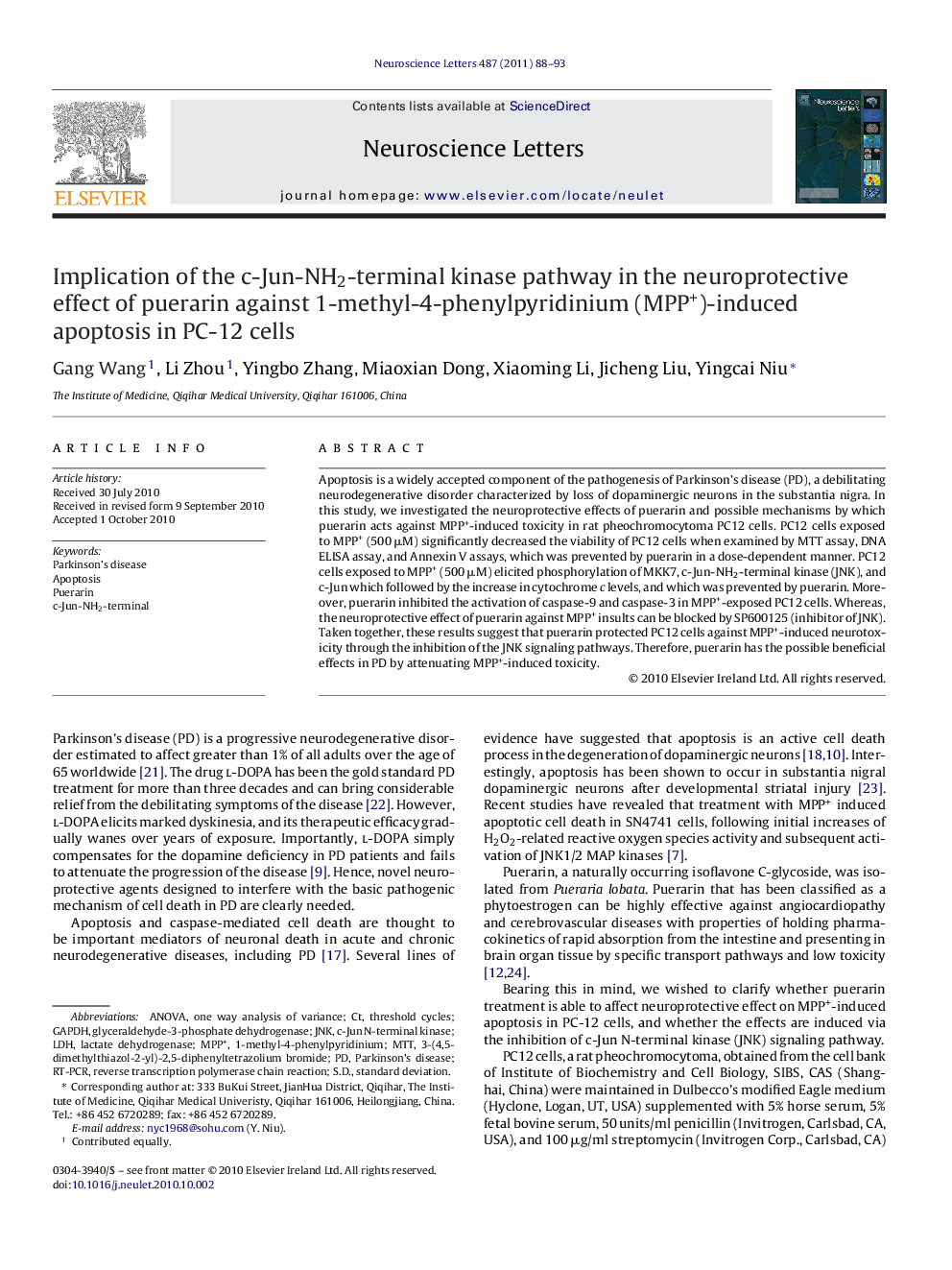| Article ID | Journal | Published Year | Pages | File Type |
|---|---|---|---|---|
| 4345395 | Neuroscience Letters | 2011 | 6 Pages |
Apoptosis is a widely accepted component of the pathogenesis of Parkinson's disease (PD), a debilitating neurodegenerative disorder characterized by loss of dopaminergic neurons in the substantia nigra. In this study, we investigated the neuroprotective effects of puerarin and possible mechanisms by which puerarin acts against MPP+-induced toxicity in rat pheochromocytoma PC12 cells. PC12 cells exposed to MPP+ (500 μM) significantly decreased the viability of PC12 cells when examined by MTT assay, DNA ELISA assay, and Annexin V assays, which was prevented by puerarin in a dose-dependent manner. PC12 cells exposed to MPP+ (500 μM) elicited phosphorylation of MKK7, c-Jun-NH2-terminal kinase (JNK), and c-Jun which followed by the increase in cytochrome c levels, and which was prevented by puerarin. Moreover, puerarin inhibited the activation of caspase-9 and caspase-3 in MPP+-exposed PC12 cells. Whereas, the neuroprotective effect of puerarin against MPP+ insults can be blocked by SP600125 (inhibitor of JNK). Taken together, these results suggest that puerarin protected PC12 cells against MPP+-induced neurotoxicity through the inhibition of the JNK signaling pathways. Therefore, puerarin has the possible beneficial effects in PD by attenuating MPP+-induced toxicity.
Graphical abstractFigure optionsDownload full-size imageDownload high-quality image (21 K)Download as PowerPoint slideResearch highlights▶ Puerarin exerted a neuroprotective effect against MPP+-induced neurotoxicity in PC12 cells. ▶ Neuroprotective effect of puerarin involved in MKK7/JNK signaling pathway. ▶ Puerarin inhibited MPP+-induced activation of mitochondrial apoptotic pathways.
